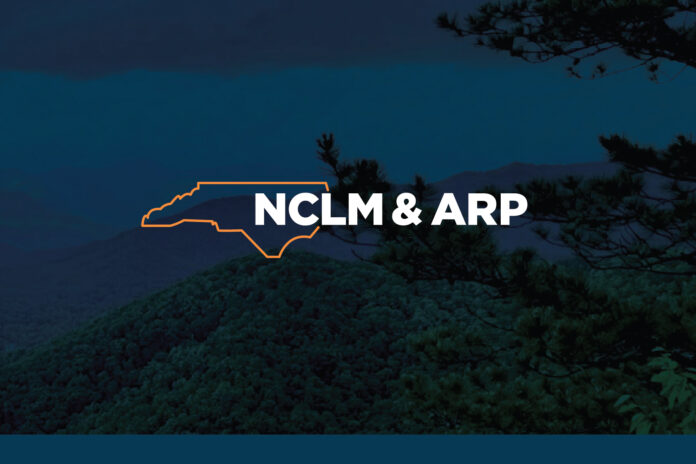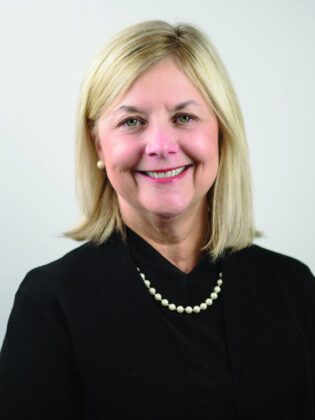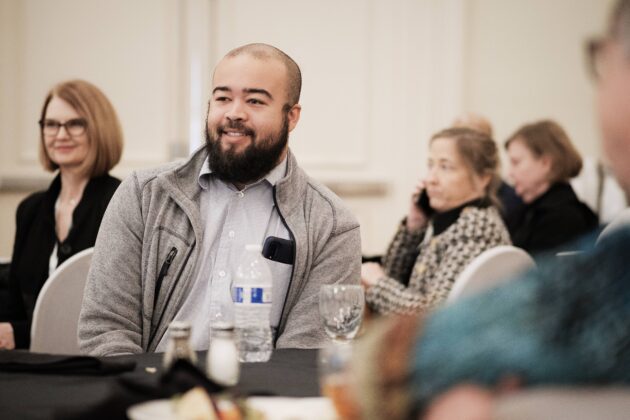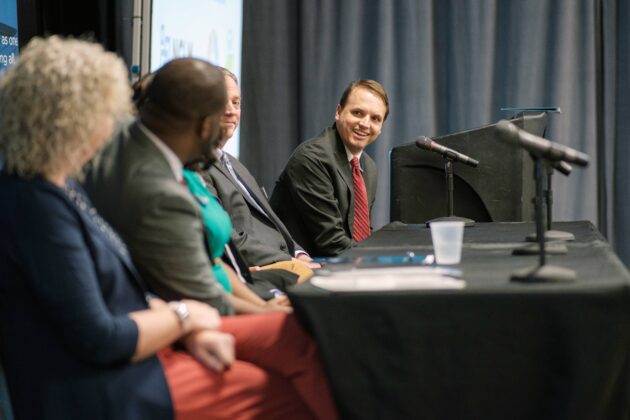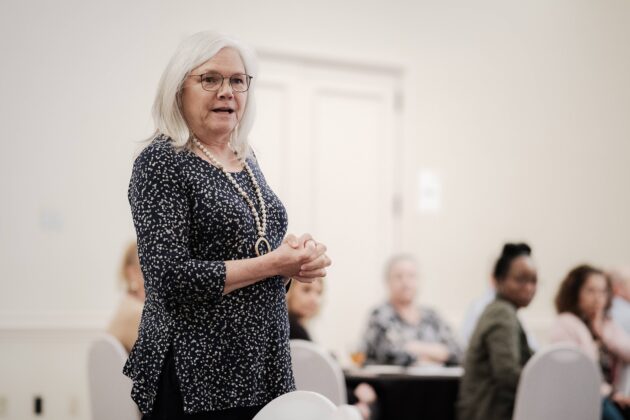The League’s ARP Service Line is more than just an assistance program to help in the short term. It’s a network of support that will assist our cities and towns for many years to come.
Background
When defined closely, the American Rescue Plan is simply a federal law—or more accurately, aid package—that provided financial support to many sectors around the country, including local governments. In North Carolina, the amount received by cities and towns totaled more than $1.3 billion.
Looked at from a historical perspective, though, the uniqueness of the law comes into focus. It’s not a typical aid package. Never before have all municipalities received direct financial support. For those that have received support in the past, it was almost certainly less or more limited than what was received previously, but for many smaller localities, ARP stands as the first time they’ve received an appropriation from the federal government.
The rarity sets the stage. This has not happened before, and this will likely not happen again. What has emerged through this one-time situation, however, is impact that will extend far beyond a single moment. City investments have been far reaching, both in size and timeline; our communities are building foundations that will last generations; cities are engaging their citizens in new and effective ways, and are engaging each other, too, through arrangements that are promoting regional investments; and supporting it all is a robust apparatus of support and partnerships, lifting up every town in this state.
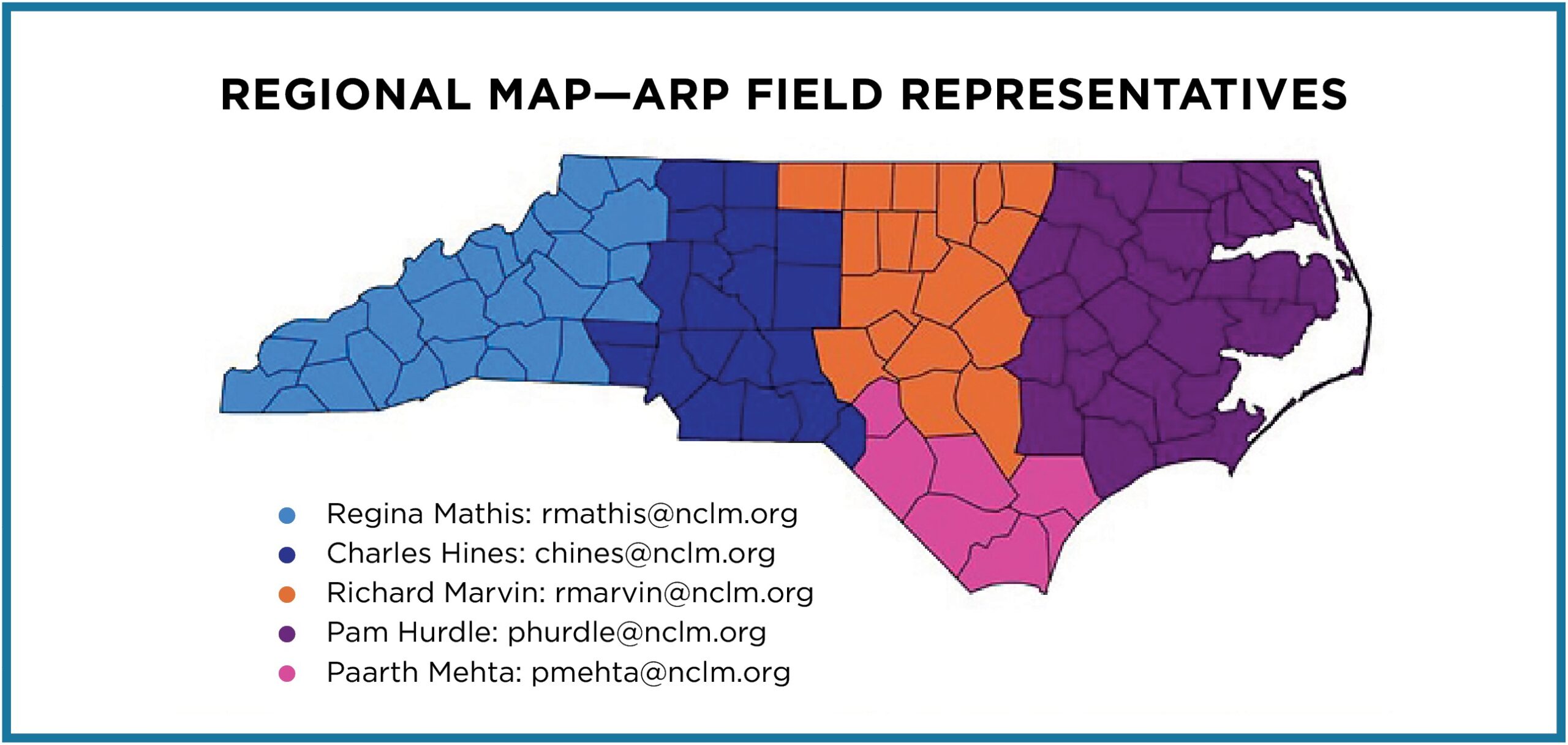 The North Carolina League of Municipalities has become a key component of this larger ARP network. Behind every decision, there is legal guidance and information sharing from the League, and for towns new to receiving federal funds, there is step-by-step direction on how to administer the funds. The full list of services being offered by the League is all-encompassing: legal, accounting, planning, engineering, communications, grant writing, and administration guidance.
The North Carolina League of Municipalities has become a key component of this larger ARP network. Behind every decision, there is legal guidance and information sharing from the League, and for towns new to receiving federal funds, there is step-by-step direction on how to administer the funds. The full list of services being offered by the League is all-encompassing: legal, accounting, planning, engineering, communications, grant writing, and administration guidance.
Through the League’s work with local governments for over 100 years, we know one thing for certain: when cities and towns get the support they need, they get the job done. The American Rescue Plan presented an opportunity for all 540-plus municipalities in North Carolina to showcase that very fact.
Staff
To support cities’ ARP efforts, the NC General Assembly provided a generous allocation of its own ARP dollars to the NC League of Municipalities. The directive was to stand up a support system that would assist towns with every facet of the American Rescue Plan.
That aimed-for support system has become the NCLM ARP Service Line, and running that service line is NCLM’s ARP Team.
“All of our towns know what investments are needed in their communities, but there are understandable challenges with limitations like staff capacity, budget constraints or just inexperience with federal funding,” said Chris Nida, NCLM’s Director of Technical Assistance to Cities, who oversees the League’s ARP Team. “Our service line fills in those gaps and provides constant support. We’re bringing them past those limitations.”
An expansive staff of dedicated public servants, numbering 24 in total, the ARP Team includes former town managers, finance officers, government budget professionals, fellows from the UNC Lead for North Carolina program, and a host of other local government professionals. They are located throughout the state. Towns, regardless of geography and location, have League staff members dedicated to their region, ensuring that help can be provided both in short order and in person.
“The team that we have built at the League is truly remarkable,” said Carla Obiol, Chief ARP Officer. “In every corner of the state, we have talented, public-minded members of the team ready to help. If you have a question, a concern or a need for guidance, we can help. We’ve already seen and helped with so many great successes in our communities.”
Obiol stands as a strong example of the talent that makes up the team, as she arrived at the League with extensive experience in project management, team-building, stakeholder collaboration, and grant implementation and administration. Obiol was previously at the Foundation for Health Leadership and Innovation, where her roles included time as interim CEO and Vice President of Community Voice and Advocacy, and before that had a 33-year career at the NC Department of Insurance, where she rose to the role of Senior Deputy Commissioner for the Consumer Assistance Group, leading three of the Department’s divisions.
“In helping our local leaders, we’re helping our communities. We’re impacting citizens,” said Obiol. “That’s what I’m passionate about, and that’s what we’re really doing here.”
The impact is in many ways immeasurable. It’s in hundreds of towns, affecting many thousands of citizens. A few examples showcase the work, and how the partnership between town and League yields tremendous success.
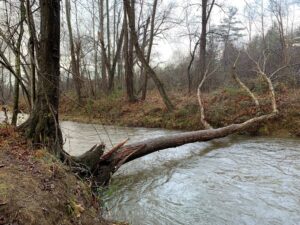 Ramseur
Ramseur
ARP Service Used: Grant writing
The Town of Ramseur, population 1,777, entered into its ARP journey with a clear vision. The goal was to build a destination park and recreation hub to serve as an economic driver for its community, and to improve the quality of life for residents. To develop the plan, they worked with nonprofit organization Unique Places to Save, which is dedicated to restoring and conserving high-quality aquatic resources.
The project is extensive. Ramseur is looking to improve the existing park, Leonard Park, through development of additional miles of trails and through other refurbishments. That project would involve connecting a lakeside parcel of land to both the park and to the trails of the nearby town, Franklinville. Additionally, there are hopes for such amenities as an amphitheater.
Certain elements of the project are complex, and a great deal of review and analysis is required. For example, Ramseur has already secured a PARTF grant to research the lake’s dam, which would potentially be used to connect the trails over the water. In total, the project is quite expensive. Much of the town’s ARP funding had already been allotted for other immediate needs.
Thus, Ramseur contacted NCLM looking to take advantage of its grant writing service.
Through League vendor Witt O’Brien, a government solutions agency with a focus on grant writing and grant management, Ramseur will be pursuing additional funds through federal and state grant programs.
It’s a solution for a situation seen commonly across North Carolina, said Obiol. Projects are worked towards and strategized about over a long period of time—but with limited staff capacity, smaller towns can often not take advantage of grants and other resources that help get those projects over the finish line.
Through the ARP Service Line, help can finally be provided.
“Our towns are strategic and creative and know what their community needs most. Grants exist for this very reason—to aid cities in achieving important projects. But our small towns simply lack the resources to pursue those programs,” said Obiol. “Through our Service Line, we’re now able to bridge that gap.”
 Town of Black Mountain
Town of Black Mountain
ARP Service Used: Legal guidance
The Town of Black Mountain is pursuing major infrastructure investments: a flood mitigation project and utility mapping project. Total costs are more than $5 million, and in addition to its ARP funds, the town has received additional federal funds and is working with the NC Department of Environmental Quality.
As with any large project, there is a maze of restrictions, requirements and legal questions. With multiple sources of funding, those questions multiply, and towns can often be left unsure of how to proceed. NCLM’s legal assistance offering is intended to cut through that confusion, and will allow towns to confidently pursue the projects their communities need.
The legal assistance program is operated through NCLM’s partner law firm Parker Poe.
Black Mountain’s Angela Reece, Project and Facilities Manager for the town, notes that the lawyers at Parker Poe were more than simply a help with the process. They were a necessity.
“We could not have done these projects without this assistance from Parker Poe,” said Reece. “They are a super impressive law firm. They have been so professional and timely and thorough. I can’t speak highly enough of them.”
Customer service is a critical element of Parker Poe’s services as well. Given the scope of projects and the approaching deadlines, legal guidance needs to be quick and immediately helpful. This service, as Reece notes, hits that mark as well.
“It’s not like you’re waiting. You’re not asking a question and waiting for someone to say, ‘Oh, I have to find the answer.’ They know the answer immediately,” Reece said.
“Through the guidance and advice of Parker Poe, the town is confident that our project will be successful and will meet all the ARPA and state requirements. We sincerely appreciate NCLM’s guidance and leadership during this process as well and are grateful for the financial support to facilitate this partnership.”
Municipal Accounting Services
One offering of the ARP Service Line stands out among the rest: the Municipal Accounting Services (MAS) program.
MAS is a first-of-its-kind assistance program, designed to promote better financial accountability and reliability for smaller governments. It addresses a persistent problem facing small towns across North Carolina. Due to the hurdles of cost and access to expertise, many smaller local governments are unable to adopt up-to-date financial systems, and instead must operate inadequate software, making them susceptible to accounting and audit errors. This service is provided at no cost to participating towns through the American Rescue Plan grant period, ending in in 2026.
The program’s full suite of services includes software for fund accounting, payroll, utility billing, taxes, and very important hands-on expert assistance.
“Financial responsibilities are among the most important for a municipality, but also among the most challenging,” said Nida. “Our smaller towns fulfill this responsibility with very limited resources. The MAS program helps them achieve better financial management both today and for many years into the future.”
The League employs accounting specialists to assist the converting towns throughout the entire process. Following the successful implementation of the Black Mountain Software, the League dedicates a point-of-contact on our staff to continue assisting towns with further questions and problems that arise.
The League will pay all member costs associated with participation in the MAS Program, including the software licensing and implementation fees and the League’s accounting assistance efforts, for the first three years.
The first “pilot” towns of the MAS Program were the Town of Pikeville and the Town of Jonesville. They each received demo versions of the Black Mountain Software and configured the system to their needs. The League provided various forms of support, such as contracting CPA help and sending League IT personnel to identify new technology needs in addition to expert staff helping on the ground.
“MAS holds tremendous potential for the cities and towns of North Carolina, as our local governments prove time and again that when they receive needed support, they get the job done. We are exceptionally fortunate to be able to partner with the Towns of Jonesville and Pikeville as our first participants,” said NCLM Executive Director Rose Vaughn Williams.
In addition to the accounting services and consultation, MAS also features an offering that tackles one of the most pressing issues facing our towns’ financial wellbeing: cybersecurity. NCLM’s in-house staff is already out across the state providing cybersecurity assessments, guidance, and consultation services.
Read more about the Town of Pikeville’s success story with the MAS Program in this issue.
Future
By the end of 2024, all American Rescue Plan dollars will be obligated, and by the end of 2026, they’ll have been spent. Three years may be a long time period in many arenas, but in the scope of public investment projects, that is a quick turnaround—hence, the flurry of activity now.
Though the dollars will be spent, the impact will only just be beginning. The examples above, of Ramseur, Black Mountain, Jonesville, and Pikeville, provide some insight into what our state can expect, as do many other cases around North Carolina.
In Sylva, public space downtown is being renovated not just to create an attractive area for residents, but to also improve the town’s stormwater capacity and make it more resilient in the decades ahead.
In Havelock, investments are underway to address aging water and sewer infrastructure, improve the town’s economic development outlook, and support the community’s most important stakeholder, Marine Corps Air Station Cherry Point.
In Lewisville, ARP money won’t be evident in just one or even two large projects, but rather will be seen throughout a slew of new and ongoing projects, all of which strategically fit within the town’s comprehensive vision. These include roadway enhancements, sidewalk extensions, and investments into public parks and programs at the town’s centerpiece facility, Shallowford Square.
In Waynesville, ARP dollars allowed the town to continue on a strategic path already in progress—and to continue on at a quicker pace. These investments touch nearly every area of town: public safety, homelessness, sanitation and recycling, parks and greenways, town staffing and, most notably, infrastructure.
And in hundreds of other towns—large and small, urban and rural, mountainous and coastal—the same story is being written. It’s a tale we know well, and that is proven true time and again: when cities get support, they get the job done.
Through the large network of support that has been created at the League and that now exists in communities all across our state, that story will only become more frequent in the coming years. Support is now entrenched.
Learn more about our ARP efforts and stay up to date on guidance and news at arp.nclm.org.


